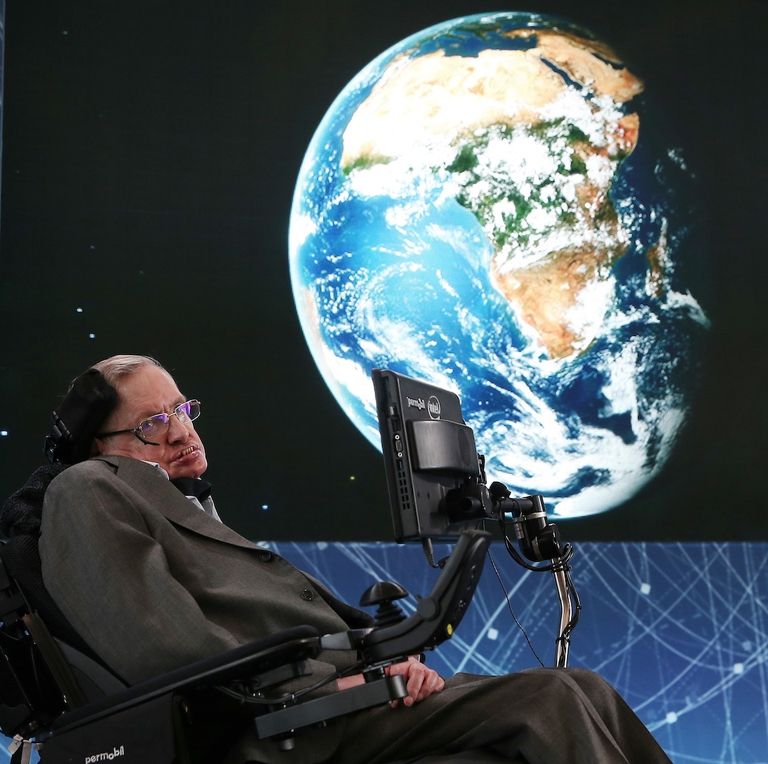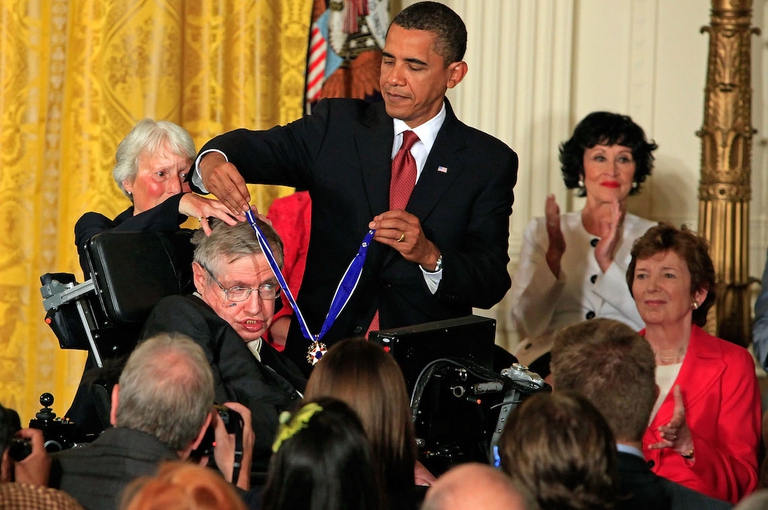
Reducing emissions means protecting our health: if unmitigated, climate change will pose increasingly severe challenges to human well-being.
Renowned British astrophysicist Stephen Hawking has died at the age of 76. Here’s what he did for science and to raise awareness on climate change.
World renowned British astrophysicist Stephen Hawking has died at his home in Cambridge, UK, in the morning of 14 March. He was 76 years old and was diagnosed with amyotrophic lateral sclerosis (ALS) at a very young age. His genius, tenacity and physical conditions made him famous all over the world.
Hawkings’s children Lucy, Robert and Tim announced his death in a statement carried by the Press Association: “We are deeply saddened that our beloved father passed away today. He was a great scientist and an extraordinary man whose work and legacy will live on for many years.”
Hawking dedicated his existence to trying to comprehend the mysteries of the universe. After the announcement of his passing the scientific community has come together to pay tribute: “Professor Hawking was a unique individual who will be remembered with warmth and affection not only in Cambridge but all over the world. His exceptional contributions to scientific knowledge and the popularisation of science and mathematics have left an indelible legacy,” said the vice-chancellor of the University of Cambridge, where Hawking was a student and a professor. “His theories unlocked a universe of possibilities that we and the world are exploring,” NASA said.
Remembering Stephen Hawking, a renowned physicist and ambassador of science. His theories unlocked a universe of possibilities that we & the world are exploring. May you keep flying like superman in microgravity, as you said to astronauts on @Space_Station in 2014 pic.twitter.com/FeR4fd2zZ5
— NASA (@NASA) 14 marzo 2018
Stephen Hawking was born on 8 February 1942. His work was mainly focused on the theory of relativity and quantum mechanics, with the aim of explaining the origin of the universe. In 1974, at the age of 32, Hawking became one of the youngest members of the Royal Society, which is United Kingdom’s most prestigious scientific institution. Five years later he got the same post held by Isaac Newton at the University of Cambridge. In 1988 he published his most popular science book: A Brief History of Time: From the Big Bang to Black Holes.
His commitment didn’t focus on academic science alone. In July 2017, during an interview with BBC, he harshly commented the decision made by US President Donald Trump of withdrawing from the Paris Agreement: “We are close to the tipping point where global warming becomes irreversible. Trump’s action could push the Earth over the brink, to become like Venus,” he said. “Climate change is one of the great dangers we face and it’s one we can prevent if we act now. By denying the evidence for climate change, and pulling out of the Paris Climate Agreement, Donald Trump will cause avoidable environmental damage to our beautiful planet, endangering the natural world, for us and our children.”
A few months earlier, during an interview with broadcaster ITV, Hawking strongly criticised the appointment of Scott Pruitt, a fossil fuel supporter and climate change denier, to the lead of the United States Environmental Protection Agency (EPA). According to the Professor, choosing a character of this kind, as well as the choice of building a wall on the border with Mexico and the approval of the Dakota Access and Keystone XL pipelines are just a move to please Trump’s voters, which aren’t tolerant or well-informed”.
In the same interview Hawking expressed his pessimism on humankind: “Evolution has inbuilt greed and aggression to the human genome. There is no sign of conflict lessening, and the development of militarised technology and weapons of mass destruction could make that disastrous”. Also, he also commented the result of the referendum in the UK: “Science is based on cooperation. Brexit would be a disaster for UK science”.
Siamo anche su WhatsApp. Segui il canale ufficiale LifeGate per restare aggiornata, aggiornato sulle ultime notizie e sulle nostre attività.
![]()
Quest'opera è distribuita con Licenza Creative Commons Attribuzione - Non commerciale - Non opere derivate 4.0 Internazionale.
Reducing emissions means protecting our health: if unmitigated, climate change will pose increasingly severe challenges to human well-being.
Typhoons will become more intense as a result of global warming, but Japan must do more to prepare itself for the perfect storm.
2016 broke yet another record: it was the hottest year since measurements began in 1880. After 2014 and 2015, it was the third year in a row that registered record temperatures. 2016 was 0.87 degrees warmer than the average of the 1880-2015 period and 1.1 degrees warmer than pre-industrial levels (19th century). 2016 was the hottest
NASA’s analysis confirms the latest trends. August 2016 sets a new monthly record in high temperatures, continuing a streak of 11 consecutive months.
Thanks to satellite data systems NASA has been monitoring 1,000 hectares of land across Canada and Alaska. The tundra has already changed because of global warming.
2015 was the hottest year in history, i.e. since tracking began in 1880. We are approaching 1°C in average global temperature rise, over half of the threshold set in the Paris Climate Change Conference (COP21), 1.5 degrees. Above that limit, many island countries and coastal areas could be submerged and millions of people forced to flee.
Antarctica, otherwise known as the sixth continent, recorded an increase of 70% in the rate of shrinking over the last decade (1994-2003). The thickness of ice shelves in the South Pole is thinner and thinner, and it could even halve within 200 years. The research containing the data was published by Science magazine,
For the first time ever a video shows how Saharan dust is transported throughout the atmosphere and contributes to fertilising the Amazon and Caribbean.
How much has temperature in your region raised? Did global warming modify the climate of your country? The answer is just a click away. You only need to download CRUTEM4 for Google Earth, released by the research unit (UEA CRU) of the University of East Anglia. It contains temperature data collected by 6,000 weather stations










